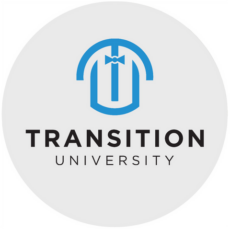
Post High: Understanding the Options and Opportunities
Students Eligible for Post High:
- Qualify for Special Education
- Are between the years of 18 – 22 years of age
- Their senior class has graduated
- Do not have sufficient credits or are lacking credits in required subjects and do not have a regular high school diploma
- Want to participate in transition services
For a student to qualify for post high they will need to be referred by their special education teacher (file holder) and a required Intake Meeting should be conducted prior to the end of their senior year. During the Intake Meeting, the student’s goals and needs are discussed and services are identified to see if they are eligible for post high. Not all special education students will qualify for Post High.
When Does a Student in Post High Really Age Out?
Utah’s legislature passed a law (HB 317) that states “if a student with a disability turns 22 during the school year, the entitlement extends to the end of the school year.” The school year is defined as the 12-month period from July 1st to June 30th. In other words, students who turn 22 years old on or after July 1st would be eligible to continue with their special education programming for one more year. Reaching the maximum age of 22 will end the eligibility for FAPE (free and appropriate public education)
What is Post High?
- Emphasis is no longer on academics, although you can still work on credits towards graduation.
- Emphasis is on employment skills, community living, independent living, etc.
- IEPs will no longer focus on academics, instead the focus is on functional skills.
- Goals should focus on education/training, independent living, and employment.
How Does Post High differ from K-12?
Post High services should be individualized. Attendance does not have to be 5 days per week and 7 hours per day, but rather a fading out process of less school and more community inclusion. For example, employment, independent living, further education/training, etc. as the student gets closer to aging out. It is important to consider transition skills such as:
- Functional Skills and Functional Academics
- Organizational Skills
- Writing Skills
- Comprehension Skills
- Time-management
- Behavioral Skills
- Employable
- Mobility
- Increasing Independence
- Community Awareness and Safety
- Independent Living
- Social, Recreation and Leisure
- Communication
- Healthy Lifestyles
- Basic Technology
- Post Secondary Education Exploration
Student Planning Checklist:
https://utahparentcenter.org/wp-content/uploads/2023/02/Student-Planning-Checklist.pdf
Additional Resources:






